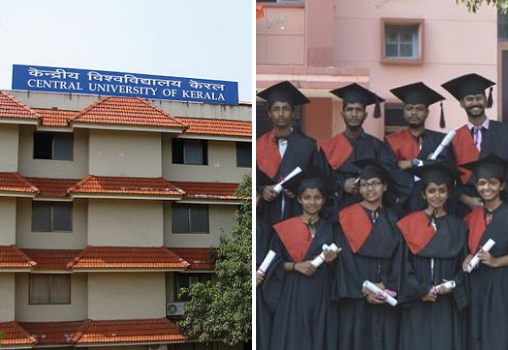In a bizarre order issued by the Vice-Chancellor, the Central University of Kerala (CUK), Kasaragod, directed its various departments to “discourage research in irrelevant areas” and prepare a shelf or list of PhD topics “in accordance with the national priorities” from which the students might choose their respective topics. The move aims at focusing on topics that align with the central issues faced by the country. G. Gopa Kumar went on to elaborate and reportedly said, “the nation’s priority means its economy, technology, food security, social issues. A 25-year-old student will not know what the country needs. It is better to give him/her ideas.”
The statement of the Vice-Chancellor, apart from being refutable at various points, is deeply problematic of our understanding of adulthood and autonomy in educational as well as other spheres too. If a 25-year-old is deemed unfit to know about national requirements, how come the Constitution empowers an 18-year-old to vote and a 25-year-old to be part of legislature?
How are civil servants, who have an eligible age of 21 years, legally entitled to run districts’ administrative machinery? The VC’s assumption of 25-year-olds not being able to demarcate boundaries of national importance downplays the achievements of several young scientists, academicians, sociologists and writers in the past.
As Rizio writes, the students of English must stop studying the works of John Keats, who died at the age of 25, mathematics majors must stop studying Evariste Galois, the pioneer of group theory who passed away at a mere 20 years of age. Age is not and must never be a determinant to the academic and intellectual genius of students and professionals.
The second aspect of the VC’s circular stresses on ‘national priorities’ whose definition has clearly not been well demarcated except for vaguely referring to the fact that it includes India’s economic, technological and social issues. Without defining the array of social issues, any project that might be potentially threatening to the ruling establishment’s political interests may be quashed without any explanation.
Furthermore, the fundamental question of whether a topic is of importance or not should be decided by the student alone. In the quest for national priorities, one might think it unimportant or even rather nonsensical to research on a topic, such as translation of an ancient text or its critique. However, what’s important is the students are granted autonomy in their decisions. The translation of an ancient text may tell us a lot about the prevailing circumstances and political scenario of times that have passed, which would also help in gaining insight into and changing the current structure of polity.
Students have alleged it to be the saffronisation of education. They have expressed their apprehensions about the circular trying to silence the voices of marginalised communities.
“When a student takes up research topics on LGBTQ+ or Dalit communities, there will naturally be discussions and discourse about these issues on the campus, and the authorities fear this. They fear the students will be aware of a lot of things and will react when they see discrimination on campus. The involvement of students in such issues beyond the academics is what they are trying to avoid through this new rule,” a student from CUK told The News Minute anonymously.
As a sign of protest, a member of the Board of Studies of English and Comparative Literature resigned after the administration’s orders asking students to complete their PhDs on topics of ‘national priorities,’ setting brutal optics of the condition of higher education in the country.
If true, this raises a question on the autonomy and independent decision-making machinery of the educational institutions. The Principal Scientific Advisor, K Vijay Raghavan, said that he felt the letter could have been worded more slightly to capture the spirit of the purpose. He went on to say that the students could use the prescribed areas or develop completely new questions that they consider important.
This could also be seen as a parallel to the deletion of chapters related to caste struggles from the NCERT textbooks, so as to allegedly reduce the academic jargon on the students. With selective education, students are bound to form a biased view of happenings in the society, leading further to the fulfillment of vested interests by the top political echelons.
At a juncture of time, when there have been widespread protests and allegations regarding curbing of artistic and academic freedom, this move adds to the woes of an already crumbling free-thinking space. Many eminent persons have also come out to protest against the same.
“Researches are to gain knowledge. Hence, researchers should be allowed to do research on any topic. Hence, I strongly disagree with the CUK’s order,” TP Sreenivasan, a former diplomat commented. However, the pro-Vice-Chancellor K Jayaprasad said that there was an attempt to trigger an unnecessary controversy.
With the order spreading like wildfire in academic and political circles, it is imperative to watch whether the students from across the country stand with the students of CUK and help in the revocation of the order. A strong will and a determined set of minds that aim to preserve the free-thinking space in academics are crucial in retaining the autonomy of education, and in extension, the democracy in the country.

